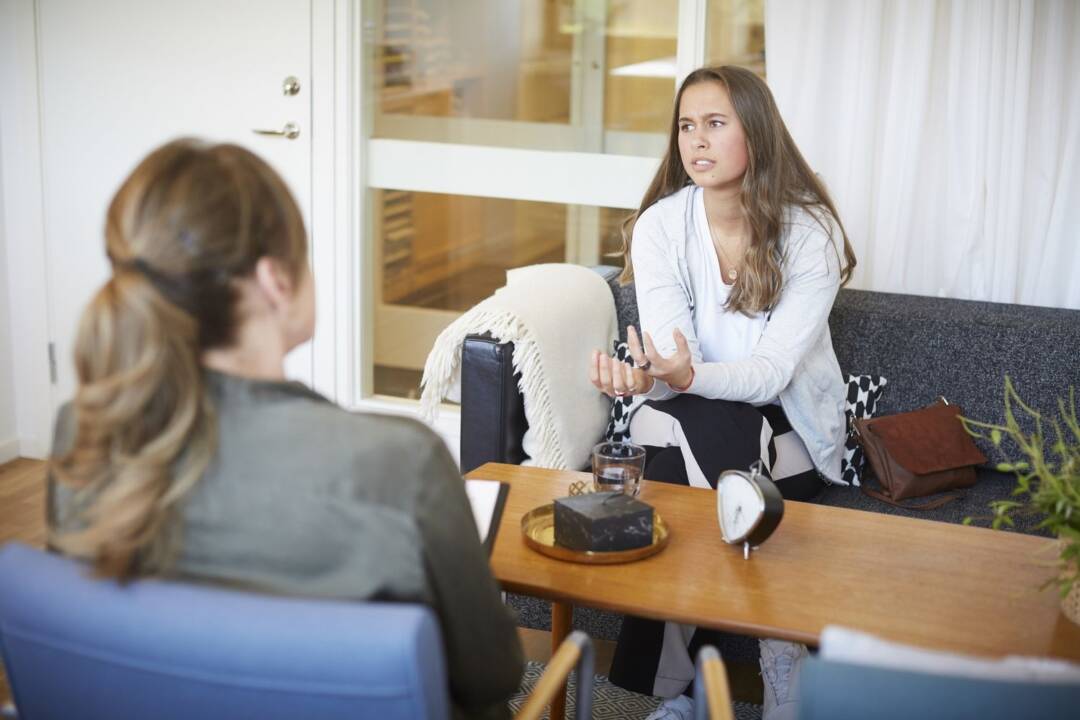HEALTH
Can Holistic Approaches Empower Older Women in Addiction Recovery?

Women of different generations have very distinct experiences. From the ways they were raised to how they stepped into the working world, their lives could have been vastly different. Over time, hurts, traumas, and addiction can filter into their lives. While addiction doesn’t distinguish between age, different treatment approaches can mark the difference between success and failure. Using a variety of holistic treatment approaches can help older women feel more at ease and can be more successful long term. Let’s explore some of these approaches and how they are helping older women thrive in recovery.
Understanding the Unique Challenges
The road to recovery for older women is paved with unique challenges that call for a tailored approach. Unlike their younger counterparts, these women often face a complex web of societal, physiological, and psychological hurdles that can complicate their path to sobriety. For one, the stigma surrounding addiction can be particularly pronounced for older women, fueled by generational beliefs about substance use.
The physical effects of addiction can be more severe in this demographic, necessitating a recovery process that addresses not only the addiction itself but also its myriad health implications. Recognizing these challenges is the first step toward crafting a recovery journey that is as compassionate as it is effective.
Embracing a Holistic Recovery Process
A holistic recovery process is vital for addressing the multifaceted needs of older women battling addiction. This approach goes beyond mere abstinence, encompassing physical, emotional, and spiritual healing. Physical wellness can be significantly improved through tailored exercise programs that respect the limitations and strengths of an aging body.
Similarly, emotional healing is facilitated by therapies that address numerous underlying issues, such as depression, anxiety, or past traumas, which are often more prevalent in the lives of older women. Spirituality, whether through organized religion or personal beliefs, can offer a profound source of strength and resilience during recovery. Importantly, integrating natural remedies and practices, including herbs for addiction recovery, can complement this holistic approach, offering additional support through nature’s bounty.
Prioritizing Social Connections and Support Systems
Isolation can be a significant issue in this demographic, exacerbated by factors such as retirement, the loss of loved ones, or physical limitations. Encouraging engagement in community activities, support groups, or volunteering can help foster a sense of renewed purpose, which is critical for sustaining recovery. Additionally, family and friends’ support provides emotional sustenance, accountability, and motivation. By prioritizing these social connections, older women in recovery can enjoy a richer, more supportive environment that nurtures their journey back to health.
Finding the Right Recovery Center
The search for the right recovery center is an important step toward sobriety for older women. The ideal facility should offer a blend of medical expertise, holistic therapies, and an understanding of the unique challenges faced by this demographic. It’s not just about treating the addiction but also about addressing the whole person, including their physical health issues, emotional scars, and social needs. A center that provides individualized care plans recognizing that each woman’s path to recovery is personal, becomes a space of hope.
Her Harbor rehab center in California serves as a prime example of what to look for in a recovery facility. Its emphasis on holistic healing offers a range of therapies, from traditional counseling and medical treatment to alternative practices like yoga, meditation, and nutritional counseling. This center understands the importance of creating a supportive community and encouraging connections among residents through group therapy and shared activities. For older women, such an environment not only aids in overcoming addiction but also in rediscovering their strength and autonomy.
Addressing Post-Recovery Life and Relapse Prevention
For older women, the fear of relapse is a significant concern. They need compassion and practical strategies. Effective recovery programs incorporate relapse prevention training, teaching women how to recognize the signs of potential relapse and how to cope with triggers in a healthy way.
Equally important is the support for reintegrating into society and finding fulfillment in post-recovery life. Whether it’s through exploring new hobbies, engaging in volunteer work, or reconnecting with family and friends, finding purpose and joy in everyday activities is vital for sustaining recovery. Empowering older women with the tools and confidence to navigate their new lives not only reduces the risk of relapse but also enriches their experience of the world around them.
Kenneth is a proud native of sydney, born and raised there. However, he pursued his education abroad and studied in Australia. Kenneth has worked as a journalist for almost a decade, making valuable contributions to prominent publications such as Yahoo News and The Verge. Currently, he serves as a journalist for The Hear Up, where he focuses on covering climate and science news. You can reach Kenneth at [email protected].










